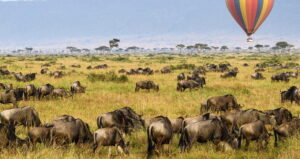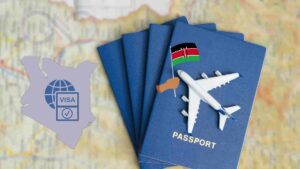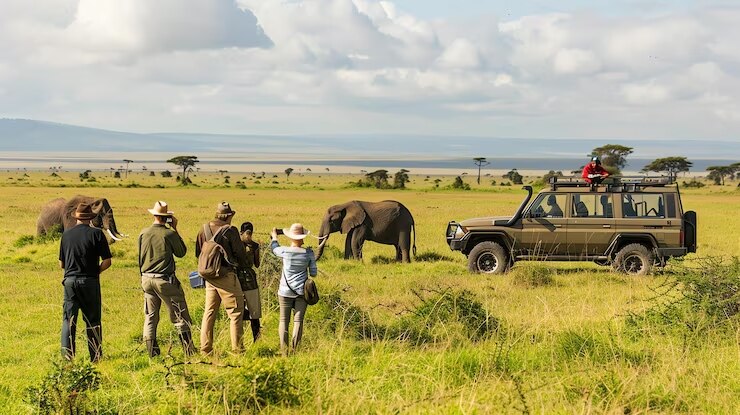Kenya remains one of the world’s most captivating safari destinations as the Jewel of Africa.
Its sweeping savannahs, iconic wildlife, and vibrant culture offer bucket-list experiences.
But to fully enjoy your journey, knowledge is key, especially when it comes to your safety.
To ensure a safe safari visit in Kenya, get Naicef as your tour operator by emailing my@naicef.com, calling +254799922277, or,
Book Any Kenya Safari Trip Here
That’s why this Naicef guide blends top Kenya safari tips, travel safety tips Kenya, Safari safety Tips, Safari Safety Concerns, and Health and Safety Tips for Your Kenya Safari into a seamless, conversational roadmap.
Kenya’s vast savannahs, rich wildlife, and welcoming culture make it one of the world’s top safari destinations.
But as with any travel experience, knowing the right Kenya safari tips can make the difference between a smooth, unforgettable trip and one filled with unnecessary stress.
Whether you’re heading to the Maasai Mara, Amboseli, Tsavo, or Samburu, following the right travel safety tips Kenya experts recommend will help you enjoy your safari with peace of mind.
Kenya Safari Tips
Before your trip, it’s worth knowing the common safari safety concerns so you can prepare accordingly.
It is smart to know what makes safaris unique, safety-wise.
1. Wildlife unpredictability
Sudden movements, feeding attempts, or exiting the vehicle can provoke animals, even if they appear calm.
Animals are unpredictable; therefore, maintaining distance and following guide instructions is key.

2. Health threats
Malaria, sunburn, dehydration, and exposure to remote medical challenges are real health risks that can affect unprepared travelers.
3. Remote locations & infrastructure
Camps may be unfenced for an authentic outdoor experience. Some safari routes can be rough, so secure your belongings and expect bumpy rides.
This makes it perfect for off-the-beaten-path adventurers.
4. Urban and transit risks
While Kenya is generally safe for tourists, petty theft and scams are common crimes in Nairobi and Mombasa.
5. Logistical gaps
Lack of phone reception, poor road signage, or unlicensed taxis can catch you off guard in some remote areas of the country.
By addressing these in advance, you can focus on the beauty and excitement of your adventure.
Safari Safety Tips
Before you even set foot on Kenyan soil, proactive planning is your first line of defense.
Here are some key safari safety tips for your next Kenya Safari trip.
1. Book with Reputable Operators
Choose established tour operators with experienced guides and well-maintained vehicles.
Look for reviews and certifications to ensure their commitment to safety and ethical tourism practices.
2. Have Comprehensive Travel Insurance
Invest in travel insurance that covers medical emergencies, evacuation, trip cancellations, and loss of belongings.
Understand the policy’s limitations and ensure it’s valid for adventurous activities like safaris.
3. Consult Your Doctor
Schedule a visit to your doctor well in advance of your trip.
You will need to discuss the necessary vaccinations that are tourist requirements in Kenya. These vaccinations include: Yellow Fever for countries with risk.
Malaria prevention medication and any personal health concerns are also recommended.
Pack a well-stocked first-aid kit with personal medications and basic supplies. This is a crucial aspect of Health and Safety Tips for Your Kenya Safari.
4. Pack Appropriately
Choose lightweight, breathable clothing in neutral colors for your safari.
Pack insect repellent, sunscreen, a wide-brimmed hat, sunglasses, and sturdy walking shoes. You never know what to expect in the wild.
Layers are essential as temperatures can fluctuate throughout the day.
5. Adhere To Visa and Entry Requirements
Stay updated on the latest visa and entry requirements for Kenya.
While Kenya has moved towards an eTA (Electronic Travel Authorization) system for many nationalities, ensure you have the necessary documentation.
All this needs to be done well in advance to avoid last-minute hassles and probable cancellation of your safari.

Safari Safety Concerns
Maintaining your health is a critical component of Health and Safety Tips for Your Kenya Safari.
- Stay Hydrated
Drink plenty of fluids throughout the day to prevent dehydration, especially in the hot African climate.
- Sun Protection
The African sun can be intense. Use sunscreen liberally and frequently, wear a hat and sunglasses, and seek shade during the hottest parts of the day.
- Manage Altitude Sickness
If your itinerary includes high-altitude areas, ascend gradually and be aware of the symptoms of altitude sickness. Consult your doctor if you have any concerns.
- First Aid Basics
Carry a basic personal first-aid kit and know how to use it for minor injuries. Inform your guide of any pre-existing medical conditions or allergies.
Addressing Specific Safari Safety Concerns
Tourists often have specific worries regarding safari safety. Here’s how to address them:
- Animal Attacks
While rare, animal attacks can occur.
Adhering to your guide’s instructions, maintaining a safe distance, and staying within the vehicle significantly minimizes this risk.
- Vehicle Safety
Reputable operators use well-maintained and appropriate vehicles for safari conditions.
Ensure your driver is experienced and follows safe driving practices.
- Security in Parks and Reserves
National parks and reserves have rangers who patrol the areas to ensure the safety of both wildlife and visitors.
However, it’s still crucial to be vigilant and follow safety guidelines.
- Nighttime Safety
Be cautious when walking around at night, even within lodges or campsites. Carry a flashlight and be aware of your surroundings.

Conclusion
Embrace the beauty and wonder of this incredible destination while prioritizing your safety and well-being.
This guide to Kenya Safari Tips and Travel Safety Tips Kenya is your starting point for a safe and unforgettable journey.
By following these safari safety tips, being aware of safari safety concerns, and applying the right health and safety tips for your Kenya safari, you’ll ensure your trip is safe, comfortable, and filled with incredible memories
Kenya, the “Jewel of Africa,” beckons with its breathtaking landscapes, diverse wildlife, and vibrant culture.
It’s time to take that step forward and heed nature’s calling on a Kenya Safari.
Call Naicef on +254799922277, email my@naicef.com, or,
Book Any Kenya Road Trip Here
Get to revel in the beauty of a Kenyan Safari by experiencing Naicef packages such as;
- 2 Days Masai Mara Safari Packages
- 4 Days Western Kenya Wildlife Safari
- 3 Days Samburu Honeymoon Package
- 4 Days Nairobi Gof Safari
Frequently Asked Questions FAQs
1. What are the most important Safari Safety Tips in Kenya
Follow your guide, stay in the vehicle unless permitted, maintain a safe distance from wildlife, wear neutral colors, use sun and insect protection, carry water smartly, and keep camps secure at night.
2. What health precautions should I take for a Kenya safari?
Get recommended vaccinations and pack a basic first-aid kit. Also, discuss any risks with travel experts.
3. How do I choose a safe safari operator?
Pick a licensed, reputable operator and ask about guides’ experience, vehicle condition, and emergency protocols before booking.
4. Is it safe to walk or exit the vehicle during the safari?
Only leave the vehicle when your guide confirms it’s safe. Never do so on your own. Walking safaris should be conducted with trained, armed guides and in a group.
5. How can I stay safe in Kenyan cities pre- or post-safari?
Use ride-hailing apps, avoid walking at night, secure valuables, keep cash and cards in hidden money belts, and avoid unsolicited offers. Do your research on your accommodation’s security.




